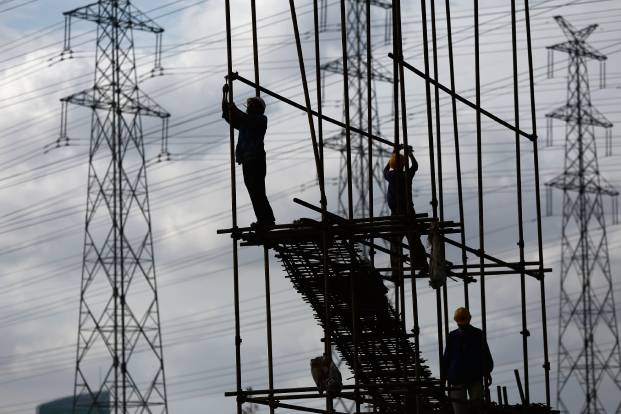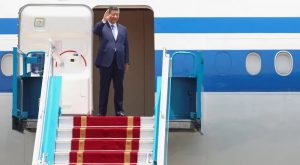China’s economy is bouncing back but Beijing must avoid the temptation to be too ‘hands-on’ and allow a levelling up of public and private enterprises, the International Monetary Fund (IMF) has advised.
The world’s No2 economy is still not performing at its full potential despite rebounding from Covid-19, IMF officials said on Friday.
“Key structural reforms should be re-accelerated to lift China’s potential growth,” the officials told reporters at an online news conference accompanying the launch of its annual assessment of the Chinese economy on Friday.
Also on AF: Blinken Cancels China Trip as ‘Spy Balloon’ Strains Ties
In its report, the IMF commends China for its initial handling of the pandemic, but stresses that the factors that saw economic growth slow significantly in 2022 could hamper economic performance this year unless properly addressed.
China’s ailing real estate sector, shrinking population, slowing productivity growth, and uncertainty surrounding the possibility of new variants of Covid emerging are among the causes for concern listed in the report.
The world’s second-largest economy will expand by 5.2% this year, according to the fund’s latest projections published on January 31, compared with 3% in 2022. That was the worst showing in nearly half a century, excluding the 2.2% expansion when Covid hit in 2020.
China’s economy is “still operating below potential,” according to Thomas Helbling, deputy director for the fund’s Asia and Pacific department, who cautioned that “the support provided in 2022 will expire,” and that the IMF recommends China adopt a “neutral fiscal stance with the composition of spending shifting towards households.”
China Consumption Promotion Drive
The State Council, which functions as China’s cabinet, on January 28 vowed to promote consumption recovery as a major driver of the economy.
IMF officials on the call pressed the need for Chinese policymakers to implement wide-ranging structural changes to the economy – such as ensuring a level playing field between private firms and state-owned enterprises – as “without reforms, we currently estimate growth to fall below 4% over the next five years.”
Speaking to the state of the global economy, Helbling told journalists that “the global impact [of China’s re-opening] on inflation should be limited,” adding that although supply chain bottlenecks involving China could persist into 2023 and affect global commodity prices, “on balance, the rebound in China will be a net positive”.
IMF officials are anticipating significant increases in outbound Chinese travel and tourism in 2023, as well as domestic consumption, particularly in catering and other contact-intensive industries that “are still operating well below capacity.”
- Reuters with additional editing by Sean O’Meara
Read more:
World Bank Cuts China Growth Forecast For 2022 And 2023
JP Morgan Upgrades China Growth Forecast Despite Covid Surge
Housing, Covid Woes See JPMorgan Cut China Growth Forecasts
























